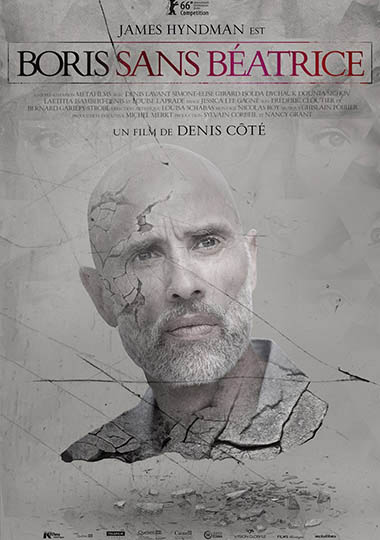Saturday, March 19, 2016
A Must-See: Denis Côté’s Boris sans Béatrice
Illness strikes,
and the world changes. Boris, even more alone than the teenagers in It Follows, is a rich factory owner who
retreats from his public life to move to the Québécois countryside to take care
of his sick wife, a former cabinet member to the prime minister (Bruce
LaBruce), whose suffering from depression and other illnesses and no longer
speaks. It’s clear that Boris has hubris problems (getting into fights with
cashiers, local politicians, his own daughter and almost everyone else), and
after receiving a mysterious letter, he meets with this mysterious figure (Denis
Lavant) who confronts him to change his lifestyle. Boris sans Béatrice brings together many themes and images from
Denis Côté’s repertoire of motifs, though now they are evolved and refined:
an isolated cottage and outsider characters, fraught father-daughter relations,
an underlying violence that edges towards the horror genre, a reflection on the arts, a multi-lingual and
sophisticated use of language, and very precise camerawork and compelling
music. Where Vic + Flo ont vu un ours
ended on such a bleak-note (the murder of the two main characters, and it’s also
worth mentioning the idiosyncratic pleasure of all of
Côté’s character names), here the fate of Boris seems more optimistic, in terms of
trying to change, loving his wife and opening up to the world. Boris is the
most upper-class, bourgeois character
in Côté’s body of work, and through him, the director is experimenting, trying
to explore new territory: psychological, social and affective. The scenes of
Boris being with his younger lovers or that of grieving and regretting his
previous self recalls similar ones in the films by another Québécois director,
Jean-Marc Vallée (Café de flore,
Demolition). The glimpses of sunlit, euphoric flashbacks with Boris and Béatrice
are a bright reminder of the pleasures available when one opens oneself up
to others and to love, and points towards the direction of Boris’ fate. Boris sans Béatrice is Côté’s best
film. All of the actors are great – underplayed, gestural, and affective – and
especially its four main leads James Hyndman, Simone-Élise Girard, Isolda
Dychauk and Laetitia Isambert-Denis. Since its earlier behind-the-scenes
production photographs and the eventual ones from its Berlin premiere, there
has been a lot of mystique and anticipation surrounding Boris
sans Béatrice. It exceeds any expectation and pleasurably surprises: Côté
blends the réel with an imagination
to best present his story. The strategy of the quick turn-around of the film
from its premiere to its theatrical run (where in local interviews he even promotes the Toronto filmmaking scene, particulary the work of Kazik Radwanski)
offers a great model for independent directors in Canada: first off, make efficient
and ambitious work that matters to you and engages with the world; get it out
there onto screens, festival ones and domestic theaters, to have people to
actually see it, and finally, (as Boris would come to learn) stay humble and
also think about others.
Subscribe to:
Post Comments (Atom)

No comments:
Post a Comment